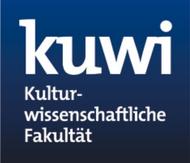Study and teaching
Courses summer semester 2024
French-language course
Dr habil. Arnaud Lechevalier
Europe sociale : trajectoire et enjeux
French-language seminar
Jeudi, 11:15-12:45
ECTS credit points: 6
Qu’appelle-t-on Europe sociale ? Quelles sont les conséquences sociales des modalités de l’intégration européenne (jalons historiques) ? Réfléchir à la notion de « modèle social européen ». Comprendre un certain nombre de grands enjeux de l’Europe sociale. Among them: the future of French mutuality in the context of the EU. S’interroger sur les effets de l’intégration économique européenne sur la dynamique des systèmes nationaux de protection sociale et d’emploi. Analyser le devenir de « l’Europe sociale » au cours de l’actuelle crise de la zone euro et de la crise Covid-19 : un changement de paradigme ?
.English-language course
The Anthropocene in Art and Literature
Pierre Wat
English language seminar
Previous courses
Courses winter semester 2023-24
Dr Fabien Théofilakis
Pour une approche comparative des génocides au XXe siècle : des Arméniens dans l’empire ottoman (1915) aux Tutsi au Rwanda (2014)
Französischsprachiges Seminar
Le séminaire propose une étude des génocides à partir d’une approche comparative fondée sur quatre génocides qui ont marqué (et marquent encore) le XXe siècle : le génocide des Arméniens lors de la Première Guerre mondiale, celui des Juifs lors de la Seconde comme, au-delà de l’espace européen, le génocide des Vietnamiens du Cambodge et de l’ethnie musulmane Cham par les Khmers rouges (1975-1979) et celui des Tutsi au Rwanda en avril et juillet 1994. Conçu pour non spécialistes, venus de disciplines différentes, cet enseignement se déroulera en trois temps – origines, déroulement et sortie du génocide –, favouring, for each séance, the réflexion comparative sur des événements dont nos sociétés sont jusqu’à aujourd’hui dépositaires. Cette approche s’inscrit en partie dans les genocides studies et renvoie à des problématiques fortement travaillées en France autour du positionnement du chercheur en sciences humaines, des liens entre pratiques historiennes et judiciaires, mais aussi des débats autour de l’unicité versus spécificité de tels événements dans une perspective.
Dr. Fabien Théofilakis
How should Nazi crimes be judged? The Second World War and its legacy in Europe (1945-2022)
English language seminar
Nearly 80 years have passed since the Second World War: a majority of Europeans no longer have an autobiographical memory of the event. Yet the legacy of the Second World War is all the more present because the crisis of the heroic myths that founded European nations in 1945 favours its remembrance through negative memories: no longer the celebration of the Resistance fighter who died for a cause, but the recognition of the innocent Jewish victim. To explore the way in which the Second World War remains present in the European societies that it helped to shape, the seminar will take as its starting point the Nuremberg trials of 1945-1948 and the last trials of Nazi criminals in Germany, and will look at the responses of the judicial, political and social actors. In order to highlight the extent to which the complex relationship between justice, history and memory surrounding the Second World War is still relevant today, the seminar will offer students the opportunity to work on the Arolla archives. work on the Arolsen archives (International Center on Nazi Prersecution).
.Courses summer semester 2023
Dr Fabien Théofilakis
Comment sort-on du génocide ? Shoah et génocide des Tutsi au Rwanda en regard
French-language seminar
In France, the trials for crimes against humanity against the Hutu leaders have been multiplying for a dozen years, allowing for a better understanding of the situation; a better understanding of the genocide of the Tutsi in Rwanda in 1994 and new comparisons with the Shoah, which remains the paradigm of genocide in the social sciences in France in particular. A partir de lectures et d’interventions extérieures, le séminaire propos une réflexion croisée entre deux génocides qui porte à la fois sur les pratiques de violence et les dynamiques de sorties de guerre. Les questions de traitements judiciaires, de politiques de mémoire, de reconnaissances seront ainsi abordés. A voyage d’étude est envisagé comme aboutissement du séminaire.
Bibliography :
Dumas, Hélène, Le génocide au village. Le massacre des Tutsi au Rwanda, Paris, Le Seuil, 2014.
Piton, Florent, Le génocide des Tutsi du Rwanda, Paris, La Découverte, 2018.
Mark J. Osiel, Juger les crimes de masse. La mémoire collective et le droit, Paris Seuil (édit. originale : 1997).
Dr. Fabien Théofilakis
Trials for history: the Second World War in debate in the courts, public space and memories in Europe
English language seminar
More than seventy years have passed since the Second World War. A majority of Europeans no longer have an autobiographical memory of what was one of the key experiences of the 20th century. However, the legacy of this conflict, notably through the notions of crimes against humanity and crimes of genocide, continues to be a current issue in the courts as well as in the media with the prosecution of the last living perpetrators in Germany. Through the trials of German war criminals held in Europe from the 1960s to the present day, Through the trials of German war criminals organised in Europe from the 1960s to the present day, the seminar will analyse how justice can serve both to state the law and to make history by offering a society the means to confront its past within the democratic rules.
.Bibliography:
Douglas, Lawrence The Memory of Judgement: Making Law and History in the Trials of the Holocaust. New Haven: Yale University Press, 2001.
Heberer, Patricia ; Matthäus, Jürgen (ed.): Atrocities on Trial. Historical Perspectives on the Politics of Prosecuting War Crimes, Lincoln: University of Nebraska Press, 2008, 327.
Mark J. Osiel. Mass Atrocity, Collective Memory, and the Law. New Brunswick, NJ: Transaction Publishers, 1997.
